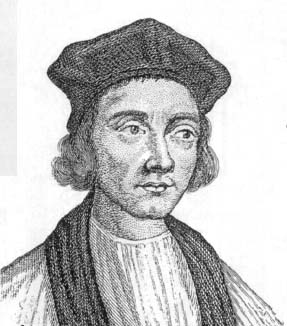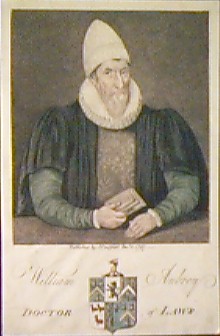Related Research Articles

Thomas Rotherham, also known as Thomas (Scot) de Rotherham, was an English cleric and statesman. He served as bishop of several dioceses, most notably as Archbishop of York and, on two occasions as Lord Chancellor. He is considered a venerable figure in Rotherham, South Yorkshire, his town of birth.

Cuthbert Tunstall was an English humanist, bishop, diplomat, administrator and royal adviser. He served as Bishop of Durham during the reigns of Henry VIII, Edward VI, Mary I and Elizabeth I.
Thomas Thirlby, was the first and only bishop of Westminster (1540–50), and afterwards successively bishop of Norwich (1550–54) and bishop of Ely (1554–59). While he acquiesced in the Henrician schism, with its rejection in principle of the Roman papacy, he remained otherwise loyal to the doctrine of the Roman Catholic Church during the English Reformation.
Thomas Young was a Bishop of St David's and Archbishop of York (1561–1568).
Sir Peter Machin North is a British academic lawyer who served as Principal of Jesus College, Oxford, from 1984 to 2005 and Vice-Chancellor of the University of Oxford from 1993 to 1997.
David Lewis was a Welsh lawyer, judge, and the first Principal of Jesus College, Oxford.

John Lloyd, born at Pendine, Carmarthenshire, Wales, the son of Morgan Lloyd, was principal of Jesus College, Oxford, vice-chancellor of the University of Oxford and Bishop of St David's.
Francis Bevans was a Welsh lawyer who was Principal of Jesus College, Oxford, from 1586 to 1602.
Robert Lougher was a Welsh clergyman, lawyer and politician who sat in the House of Commons in 1572. He was twice Principal of New Inn Hall, Oxford.

William Aubrey was Regius Professor of Civil Law at the University of Oxford from 1553 to 1559, and was one of the founding Fellows of Jesus College, Oxford. He was also a Member of Parliament for various Welsh and English constituencies between 1554 and 1592.
Rev. John Lloyd DCL (1533–1607) was a Welsh lawyer, Judge of the High Court of Admiralty in London, board member of All Souls College, and a cofounder, along with Queen Elizabeth Tudor, of the first Protestant College at the University of Oxford.
John Cotterell DCL was an English clergyman and academic at the University of Oxford, who was one of the founding fellows of Jesus College, Oxford.
Nicholas Harpsfield (1519–1575) was an English historian and a Roman Catholic apologist and priest under Henry VIII, whose policies he opposed.
Thomas Darbyshire (1518–1604) was an English churchman and Jesuit.
William Chedsey (1510?–1574?) was an English Roman Catholic priest and academic, who became archdeacon of Middlesex in 1556 and President of Corpus Christi College, Oxford in 1558.
Richard Marshall D.D. was an English clergyman and academic administrator at the University of Oxford.
John Fuller was the master of Jesus College, Cambridge. As bishop's chancellor in Ely, Cambridgeshire, he was charged with suppressing Christian heresy, condemning several heretics to be burnt at the stake.
Edward Hawford D.D. was an English churchman and academic, Master of Christ's College, Cambridge from 1559. While Hawford was a somewhat conservative and administrative-minded academic politician head of house, no friend of religious enthusiasm and suspected of covert Catholicism. Christ's became a Puritan centre under his mastership.
Edmund Meyrick was a Welsh Anglican priest in the 16th century.
References
- ↑ Foster, Joseph (1888–1892). . Alumni Oxonienses: the Members of the University of Oxford, 1500–1714 . Oxford: Parker and Co – via Wikisource.
- ↑ "The Founders". jesus.ox.ac.uk. Archived from the original on 12 October 2018. Retrieved 12 October 2018.